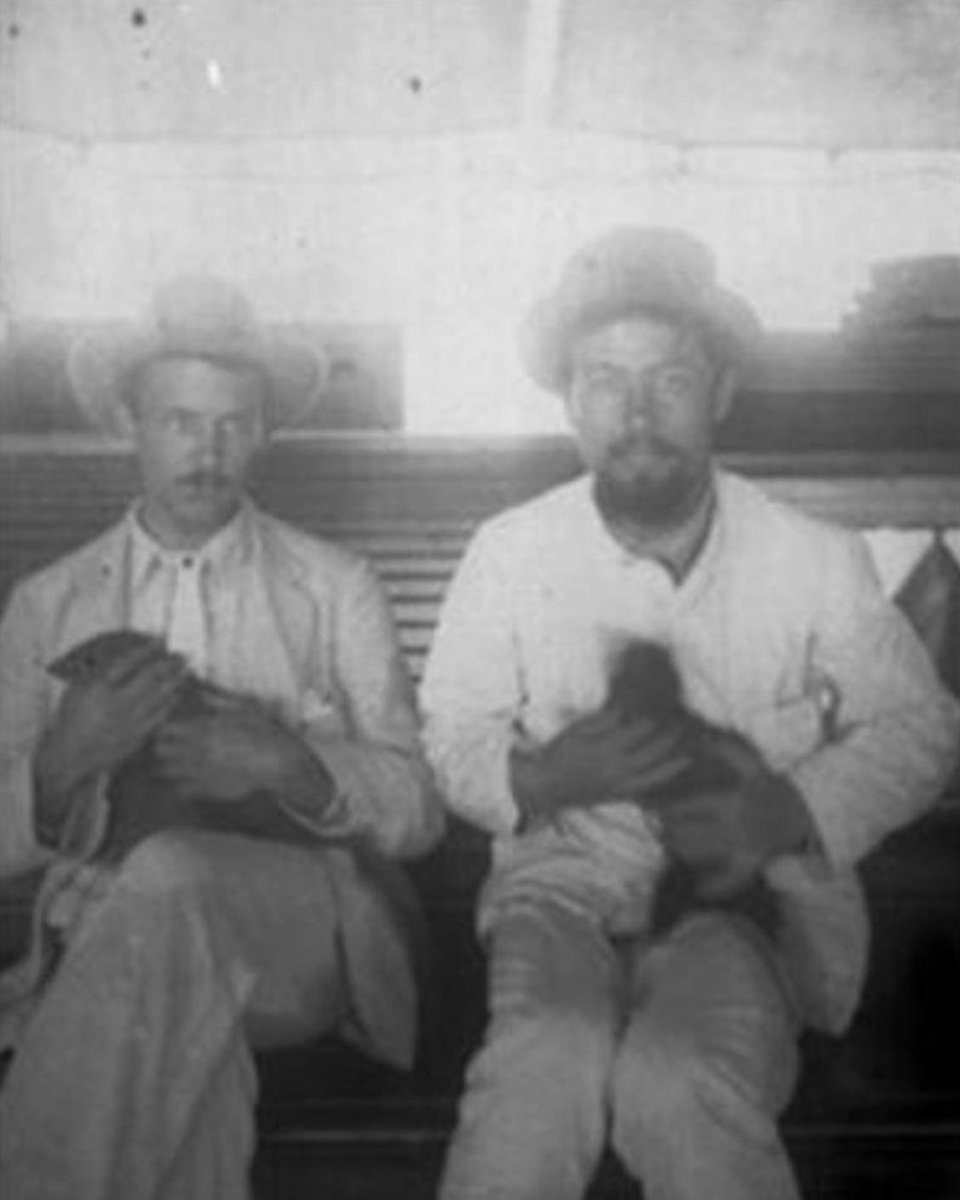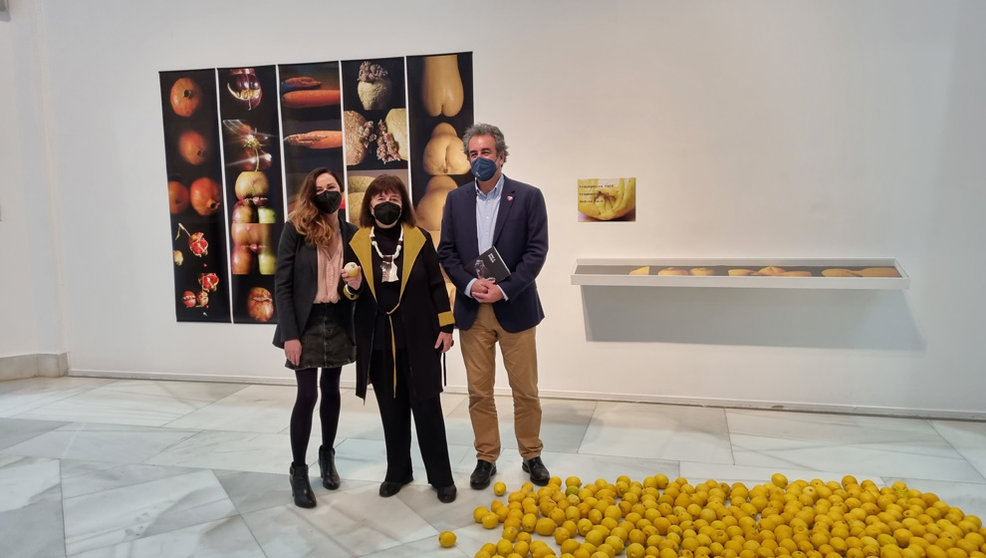by Clara Usón
“Did you know that Chekhov had a pet mongoose named Svoloch?”, asked Tamara one day.
No, I didn’t. The whole story sounded just like one of those spoof literary anecdotes attributed to Kharms: “Once, when travelling in Ceylon, Chekhov bought himself a mongoose that he christened Svoloch”. A quick Internet search brought numerous confirmations of this factoid, always accompanied by the same grainy photograph: that of Chekhov and another guy, said to be midshipman Glinka, sitting on a bench and petting a rat-like creature each. One does not have to own a mongoose to take a photo like that.

OK, heard, researched (kind of), forgotten. Now I wouldn’t be surprised if Google started to spoil me with stories about Svoloch on regular basis. But no. The pesky mongoose appeared, à la Borgesian hrön, in a physical book that I already had with me.
Miss Lucía Almandoz (apparently, an alter ego of the author), licentiate in Spanish philology working on her Ph.D. thesis about Chekhov, is inexplicably transported from 1987 Barcelona to the writer’s estate of Melikhovo in 1892. There, as countess Lucía Rodolfovna Almandozovna, she finds herself vying for the famous writer’s attention with Lika Mizinova and another — clearly fake — countess, one Klara Mamuna; bathing in the river; treating the Chekhovs to caviar and salmon; singing Yellow Submarine; finding and losing a fictional lover; and yes, taking Svoloch for a walk.
As one could expect, meddling in the past brings about zero changes, desirable or otherwise: everything goes exactly as it was described in Chekhov’s biographies so familiar to Lucía. Well, she tried her best. I found it especially commendable that she attempted to prevent Anton Pavlovich from writing his world-famous and dead boring plays — maybe her motivation was a bit selfish, but still.
El viaje de las palabras was first published in 2005. A bit late then to point out a few word choices that are bound to grate on a Russian ear. I’ll do it anyway.
- “¡Queridos Pavel Egorovich y Evgenia Iakovlevna, queridísimos Batiushka y Manushka...!” (p. 35*): Lucía, who speaks fluent Russian, addresses the parents of Anton Pavlovich as if they were her own father and mother, respectively. The correct Russian word for mum is matushka (матушка), not manushka.
- “Batiushka —le dijo a Evgenia, cogiéndola familiarmente del brazo—” (p. 37): here, for some reason, Lucía calls Chekhov’s mother batiushka (батюшка), “father”.
- Lucía says “mi nombre completo es Lucía Almandoz Quesada (en ruso Lucía Rodolfovna, ése es mi patronímico, porque mi padre se llama Rodolfo)” (p. 42). Fair enough, but a full Russian name contains just one patronymic while “Lucía Rodolfovna Almandozovna” appears to have two. A more Russian-sounding surname would be “Almandozova”. Mind you, “condesa Almandozovna” could have been introduced for comical effect; cf. Countess Alexandrovna in Woody Allen’s Love and Death.
- Throughout the text, “Lucioshka” is employed as a diminutive of Lucía: “Lucioshka (¿por qué no conseguía que los Chéjov la llamaran así?, ¡sonaba tan cariñoso!... En las novelas rusas a las Veras se las llama Veroshka; a las Sonias, Soniechka; ¿por qué no podían llamarla a ella «Lucioshka»?” (p. 69). The short answer to Lucía’s question is that no Russian would ever say “Lucioshka”. They’d rather make use of the existing names like Lucichka (Люсичка) or Lucen’ka (Люсенька), both diminutives of the unrelated female name Liudmila (Людмила).
- “No me han costado nada, me las ha regalado Gavrila, su mujer, ¿para qué las quiere ella, si su Nikolai ha muerto?” says Agafia referring to Nikolai’s widow (p. 133). Gavrila (Гаврила), however, is a variant of the male name Gavriil (Гавриил); it sounds weird applied to a woman.
- “Ha llegado un hombre santo al pueblo, un stranniki” (p. 233): stranniki (странники) is plural of strannik (странник), so one of them should be “un strannik” or “el strannik”. Curiously, the footnote on the same page consistently refers to stranniki in plural: “Los stranniki o errantes eran miembros de una secta religiosa disidente que predicaba la ruptura con las ataduras del Estado y la sociedad, para ellos la encarnación del reino del Anticristo, y vagaban como «espíritus libres» por las tierras de Rusia, viviendo de la mendicidad.”
These puzzling blunders aside, the novel is practically perfect: well-researched, well-written, inventive, at times hilarious, and a joy to read. One of the rare cases when I’d like the book to last longer.

Chéjov, por su parte, no hablaba con nadie, estaba de un humor melancólico y hacía bolitas de pan en silencio, mientras, a su derecha, Lika Mizinova le contaba algo a Vania con aire de conspiradora y Evgenia, que había sentado a su lado a la falsa condesa, no cesaba de agasajarla. «¿Quiere un poquitín más de caviar, Excelencia?», le preguntaba, cuando si algo había hecho Clara Mamuna en esa cena era comer caviar, la que más. En cambio Lucía, a quien todos debían esas abundantes reservas (aunque ningún Chéjov tuvo la delicadeza de mencionarlo), apenas lo había probado, porque le quedaba muy a trasmano. Antes de que la Mamuna acabara con todo, le pidió a Masha que, por favor, le acercara el caviar, pero Masha no la escuchó o, si la oyó, no le hizo caso, y la condesa Lucía Rodolfovna en persona tuvo que levantarse de su silla para, pasando una mano audaz sobre la cabeza de Evgenia, capturar a tiempo la fuente de caviar que la falsa condesa ya estaba atacando otra vez con una cuchara. Y, de repente, se produjo una situación muy tensa: todos callaron. De pie, la condesa Almandozovna con la mano derecha blandía en el aire la fuente de caviar y, sentada, dándole la espalda, la condesa Mamuna empuñaba la cuchara. Lucía se sintió a punto de explotar: «¡Este caviar es mío y yo ni lo he probado, todo se lo ha comido esta señora!» (eso hubiera querido decir), pero su exquisita educación se lo impidió.
— ¡Oh, perdona, Clara!, no me he dado cuenta de que te ibas a servir — le ofreció con la voz más forzada, al tiempo que le presentaba la fuente.
Y Clara Mamuna se sirvió, dejó la fuente limpia.

















